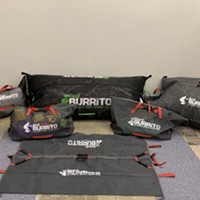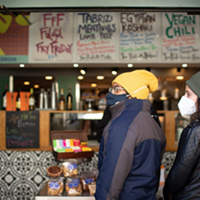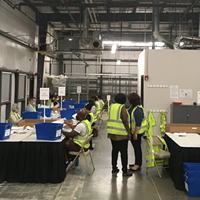Local activists marching forward
Charlotte protesters change game plan after DNC
By Ryan Pitkin @pitkin_ryanCharlotte protesters have been regrouping since the first week in September, when so many eyes were watching them and so many ears listening. Many are optimistic about the future of local activism and ready to put what they learned during the Democratic National Convention toward reaching new goals and increasing their numbers.
Groups are weaving their causes together to recruit more members and unify the activist community. One activist even plans to trade in his bullhorn for a suit, at least every Monday.
Michael Zytkow has been a part of Occupy Charlotte since the movement began in September 2011. Before that, he worked with Amnesty International and conducted other relief work through academic programs, including helping victims of Hurricane Katrina. Now, Zytkow wants to effect change as a Charlotte City Council member.
In contrast to those in the activist community who consider politics a dirty word, Zytkow plans to run for office in 2013 and said his colleagues have been mostly supportive.
"I still think, of course, that many of them don't believe that [elected office] is the path that they would choose or even the path that will cause the change that they envision, but [Occupiers] believe that if you feel empowered to take a certain approach, then more power to you," Zytkow said.
He's aware of the conflict his aspirations might cause within Occupy, a self-proclaimed leaderless movement, but considers theirs a "multifront" battle that must be fought not only on the streets but also within the political arena.
"It's not necessarily seeing myself as a leader, but seeing myself in a position to be able to represent so many people that don't have that opportunity," Zytkow said. "It would be great to be able to bring up issues in the chambers that other members might not want to bring up or maybe just don't even think to bring up because their world view is not the same as ours."
With so many different issues and messages, Charlotte activists, including Zytkow, admitted in the year leading up to the DNC that they were struggling to recruit protesters and organize themselves. That's why a few months before the convention they created the Coalition to March on Wall Street South, which brought together about 90 social justice, labor and community organizations for the DNC's largest protest. Aside from the boost of encouragement each felt when more than 1,000 protesters showed up at the event, the organizers took away an important message: working together and finding commonalities among causes is the key to recruiting more activists.
Monica Embrey, a field organizer with Greenpeace Charlotte, recently started a blog that links environmentalism to immigration. In it, she argues that carbon dioxide emissions from coal plants, including those owned by Charlotte-based Duke Energy Corp., will worsen global climate change and bring refugees from continents affected by rising sea-levels to the United States.
Another way activist groups are trying to broaden their audience is by reaching out to organizations that aren't traditionally protest advocates but may share some of the same values, such as churches and labor groups.
Roxana Bendezu formed the Social Justice Action Network in November 2011 as a way to unify different groups. She helped organize the Bank of America shareholder meeting protest in May and some of the marches during the DNC but says she wants to spend the next year reaching out to other, like-minded organizations. Bendezu attends St. Peters Catholic Church, which has a long history of helping progressive political activists. She hopes that more religious-based groups will get involved with social-justice issues in the next year.
"Every holy book that I can think of talks about being your brother's keeper, the golden rule and etc.," Bendezu said. "[The religious community] should be advocating for those rights as well and trying to be a part of those people who are already doing the work."
Organizers plan to brainstorm new and creative ways to include more groups, including neighborhood associations, over the next few months. Embrey said she's heard talks of block parties and mass training sessions to be held and conducted in different languages and different parts of the city that would educate protesters on how to more effectively organize and deliver their messages.
"In the past year, we've seen a pretty dramatic transformation in the Charlotte area," Embrey said. "I'm really excited to see, over the next year and five years and 10 years, what happens in this community as more and more groups are coming together and demanding more of our corporate neighbors and elected officials."
Speaking of...
Latest in News Feature
More by Ryan Pitkin
-
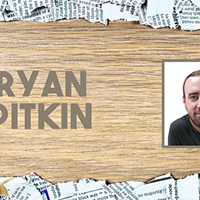
You're the Best... of Charlotte
Oct 27, 2018 -
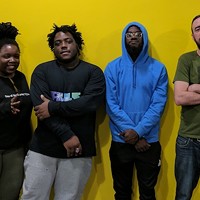
Listen Up: Cuzo Key and FLLS Go 'Universal' on 'Local Vibes'
Oct 25, 2018 -
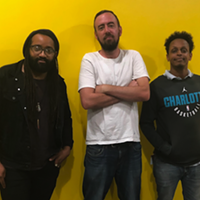
Listen Up: KANG is Back and Bla/Alt on 'Local Vibes'
Oct 18, 2018 - More »
Calendar
-

Wine & Paint @ Blackfinn Ameripub- Ballantyne
-

Queen Charlotte Fair @ Route 29 Pavilion
-

NEW WINDOW GALLERY-Pat Rhea-ACRYLIC PAINTINGS-April 05-30 2024 VALDESE, NC 28690 @ New Window Gallery/Play It Again Records
- Through April 30, 12 p.m.
-

TheDiscountCodes
-

Face to Face Foundation Gala @ The Revelry North End
-
Esports in Charlotte Takes Off: A Guide to Virtual Competitions and Betting
-
Homer's night on the town 41
If you drank a shot with the Knights mascot on Sept. 20, you were basically harboring a fugitive
-
Beauty Industry Trends To Look Out For In Charlotte In 2022


